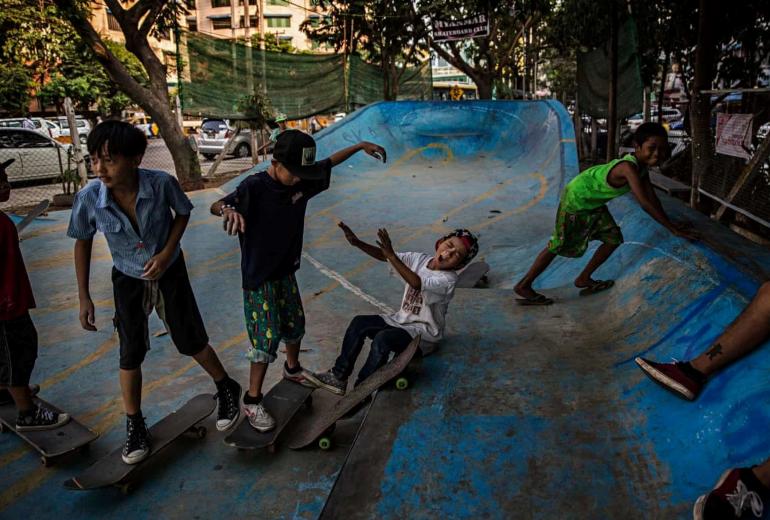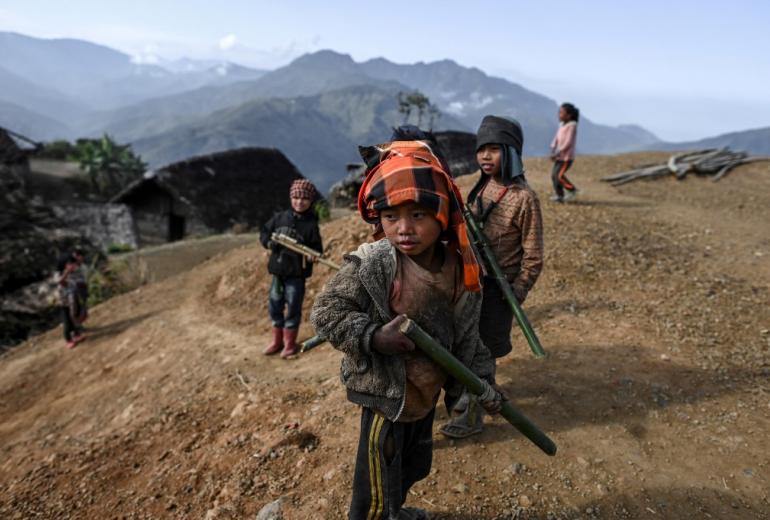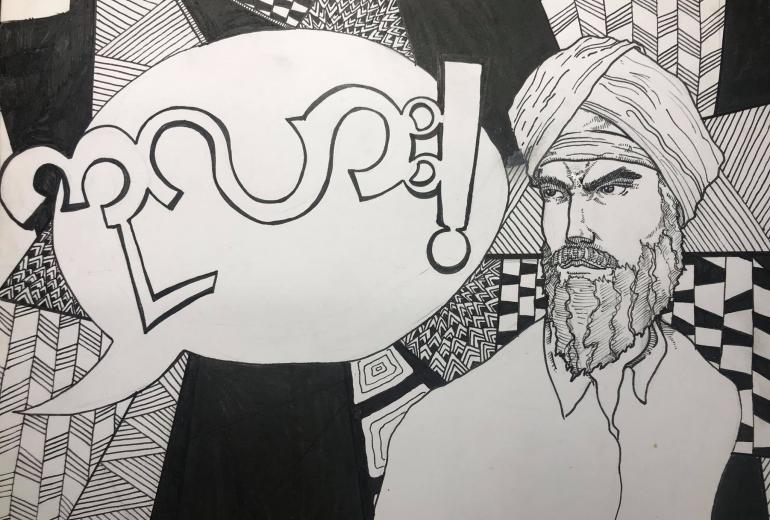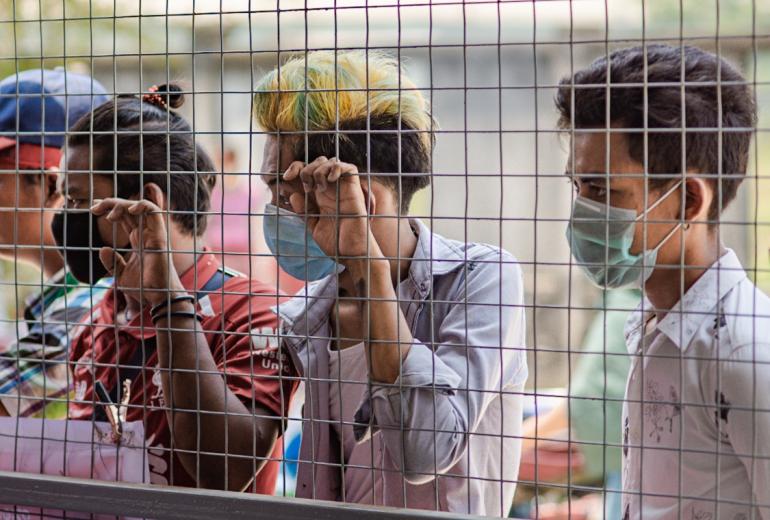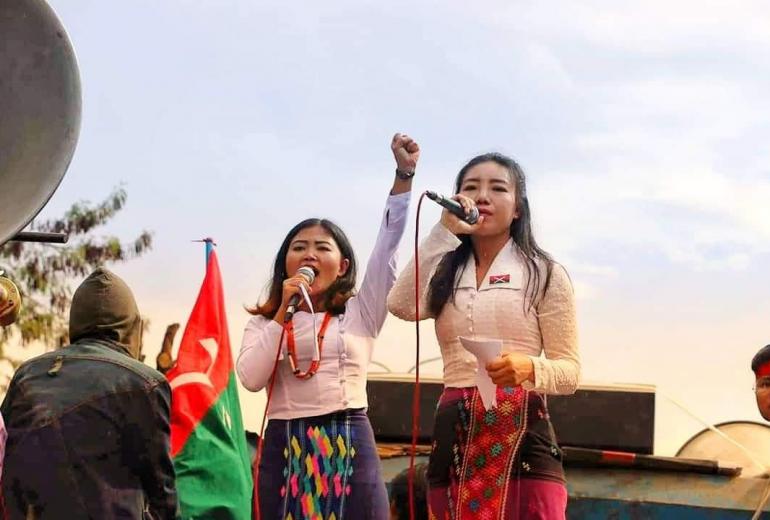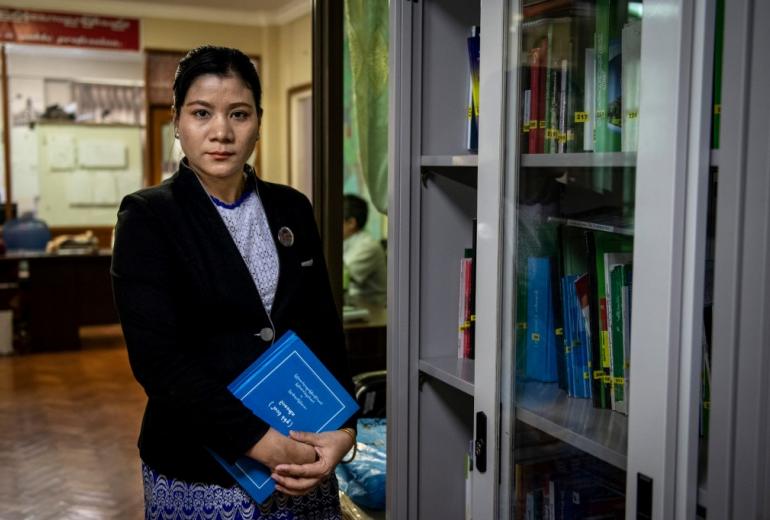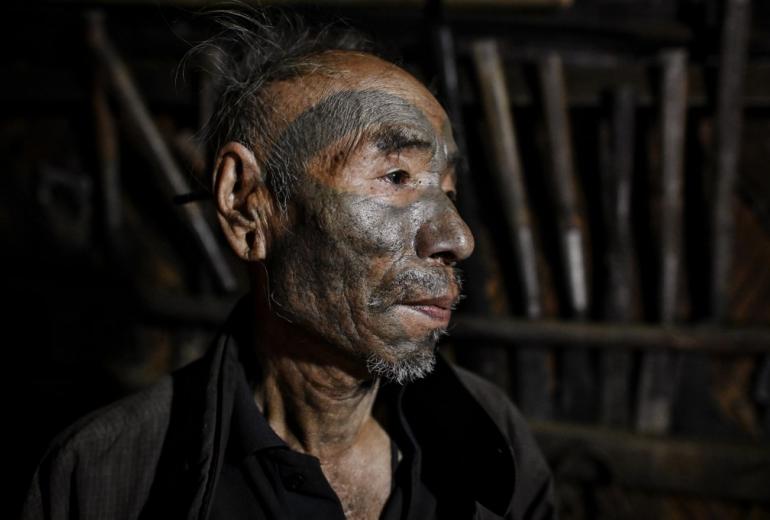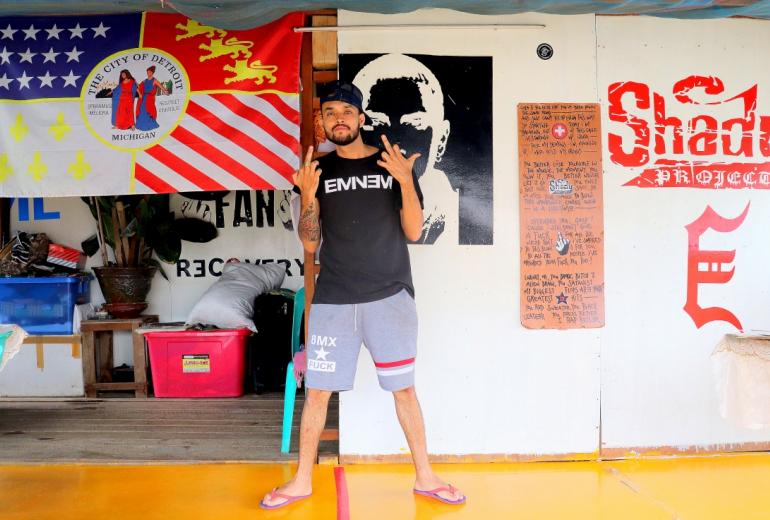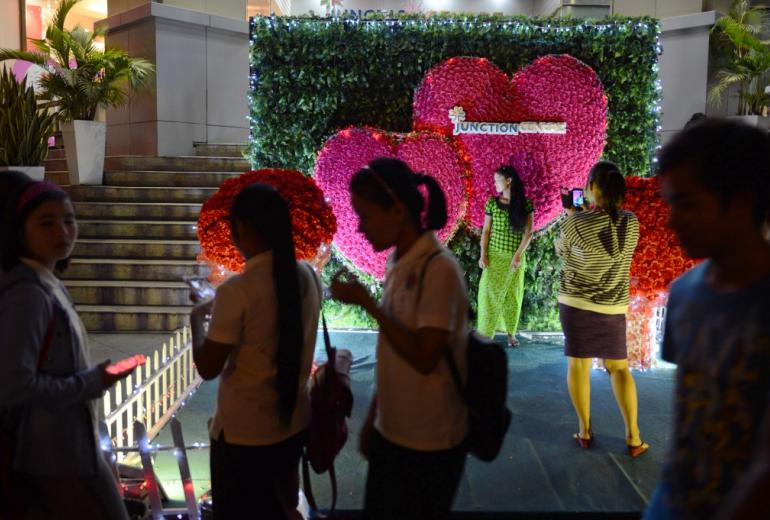Features
Support from across the world has helped local skateboarders survive the pandemic.
The king of the Konyak tribe sleeps in Myanmar, but eats in India—his house, village and people divided by a mountain border which serves as a vulnerable lifeline now severed by a coronavirus lockdown.
It went from innocuous to racist, so let’s turn it back.
Day labourers, factory workers, and people who eke out a living on the streets are among the most impacted in Yangon during the coronavirus pandemic.
To mark International Women’s Day, Myanmar Mix spoke to five inspirational women who are leading conversations on some of Myanmar’s most critical issues.
Officially, rape hardly happens in Myanmar and domestic abuse is non-existent. The reality? Violence against women is so pervasive it is regarded as normal -- and as a result -- woefully underreported, says lawyer and activist Hla Hla Yee.
Ngon Pok remembers his father and grandfather returning triumphantly to his tribal village in Myanmar's far north with a human head—and the agony of the tattoo he was given to celebrate their victory.
“Eminem is the rap god; I'ma be the food god,” says Myanmar's real Slim Shady.
There is only so far Tinder and Grindr can take you in the world of Myanmar dating.

